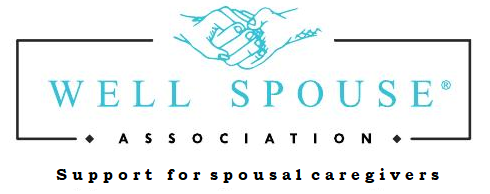Spousal Impoverishment Protections for Medicaid Home Care Allow Well Spouses to Keep Ill Spouses at Home
Don’t Let Them Expire on December 31, 2019!
Well Spouses and their Ill Spouses Often Want the Ill Spouse to Remain at Home. Home and community-based services (HCBS) enable Medicaid beneficiaries with serious disabilities and/or cognitive impairment to improve and maintain their health and quality of life while remaining in their homes, where most people prefer to be, rather than in nursing homes or other institutional settings. In addition to being the preferred choice for many Well and Ill Spouses, importantly, home care also costs Medicaid less on average than institutionalization.
In 2010 Congress passed legislation extending the impoverishment protections that exist for Well Spouses of Medicaid nursing home residents to Well Spouses of Medicaid beneficiaries who receive home care—for the five years from 2014 through 2018. Since January 2019, Congress has kept the home care protections on life support by passing three short-term extensions through December 31, 2019, while it works to find a long-term solution. Unless Congress Acts, these vital protections will expire on December 31!
Overview of Spousal Impoverishment Protections
Thirty years ago, Congress created protections to prevent Well Spouses from depleting all financial resources due to their Ill Spouses’ need for long-term services and supports (LTSS). Federal law guarantees financial protections for Well Spouses of nursing home residents with Medicaid. According to the National Academy of Elder Law Attorneys (NAELA), these “spousal impoverishment” protections include:
- Community Spouse Resource Allowance (CSRA). The CSRA is a modest allowance of savings (apart from a house and a few other items) that federal law mandates the community spouse (the partner of a Medicaid applicant) can keep for basic living and health expenses, while still enabling their Ill Spouse to qualify for Medicaid benefits. The CSRA is based on a couple’s resources on the date of admission to an institution. While the institutionalized spouse is allowed no more than $2,000 in savings to qualify for Medicaid in most states, in 2019, the minimum a state may allow a community spouse to retain is $25,284 and the maximum is $126,420. Within this range, most states require a split for Medicaid eligibility, so for a couple with $100,000 in resources as of the onset of the continuous need for long-term care, the community spouse is permitted to keep $50,000.
- Exclusion of a Community Spouse’s Income. To be eligible for Medicaid, certain income and asset limits must be met. Medicaid does not count the community spouse’s income when determining whether the institutionalized spouse is eligible for Medicaid. This allows the Well Spouse to continue to work and earn to support other family members and their own retirement needs.
- Minimum Monthly Needs Allowance (MMNA). The Community Spouse is also entitled to a MMMNA, which in 2019 ranges from $2,057.50 to $3,160.50 a month, depending on the state. If the Community Spouse’s income is below the MMMNA limit, the Institutionalized Spouse’s income can be used to supplement the difference.
Ending Mandated Spousal Protections for Home Care Could Cause More Unnecessary Institutionalization.
Providing impoverishment protections for Well Spouses of Ill Spouses who receive care at home rather than in an institution makes it possible for families to remain together. If forced to choose between depleting all family resources to pay out of pocket for home care or placing an Ill Spouse in an institution to save their family from financial ruin, many families will choose the latter even if the Ill Spouse could safely remain at home—and even though home care costs Medicaid less than nursing home care. Congress must act now to prevent Well Spouses from being forced to choose between impoverishment and premature unwanted placement of their Ill Spouse in a nursing home. We urge Congress to make home care (HCBS) anti-impoverishment protections for Well Spouses a permanent feature of the Medicaid program before they expire on December 31, 2019.
An excellent way for Congress to achieve this goal would be for it to pass Rep. Debbie Dingell’s H.R.1343 and Sen. Casey’s S. 2000--the Protecting Married Seniors from Impoverishment Act. Don’t delay! Call your Senators and your Representative today, and urge them to cosponsor, support and vote for these vital bills!

Follow us on